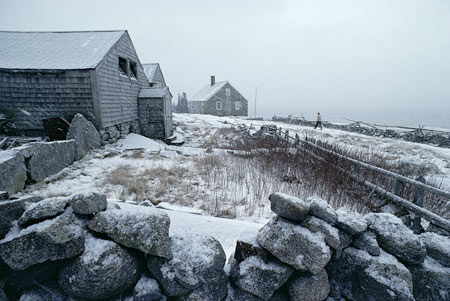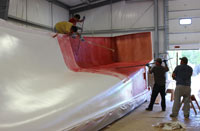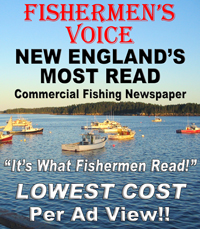
Island Farm. Maine lobster is in demand during the holidays in Western Europe. Demand has varied, but is increasing again. A food movement based on local sources, quality, fresh product and sustainability has been underway in the U.S. and Western Europe. Maine, with the largest number of new small farms in the U.S. and the source of one of the world’s highly-regarded wild caught, clean water seafoods, is in a unique position to play a leading role in these evolving markets. Peter Ralston photo www.ralstongallery.com
Slow Food, Maine Lobster
Turin, Italy
by Paul Molyneaux
In late September, I found myself among a million people in what amounted to a well-organized food riot on the north bank of the Po River in Turin, Italy. Every other year the international Slow Food movement hosts an event here called Terra Madre (Mother Earth), a celebration of small-scale farming and fishing.
Surrounded by farmland in the shadow of the Alps, Turin may not seem like the place to talk about fish, but that did not stop us. Fishermen, seafood dealers, and fisheries activists gathered on the margins of the crush of people and food stalls, where we shared our views on the problems facing small-scale fisheries and how to surmount them.
The three major topics of the event this year were privatization of the oceans, “ocean grabbing,” as host Michèle Mesmain, the Slow Fish campaign organizer, calls it; followed by success stories from fishermen around the world; and a workshop on how to create an open-source eco-label for small-scale fisheries. This article could be very long, but what I’m offering are snapshots of a three-day-long conversation among fishing people who believe they have a future.
On the first day of the event, Astrid Alexandersen, a young activist with the Danish/African NGO Afrika Konakt, offered her critique of Blue Carbon Trading, in which a network of government, businesses and large NGOs hope to generate at least $3 trillion in carbon credit. According to Alexandersen, various organizations were promising to restore wetlands, mangroves, and estuaries around the world, not necessarily to reduce carbon output, but to generate credits that would be sold on the international carbon market.





